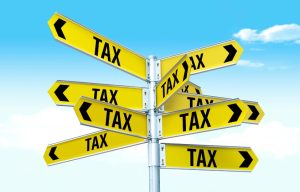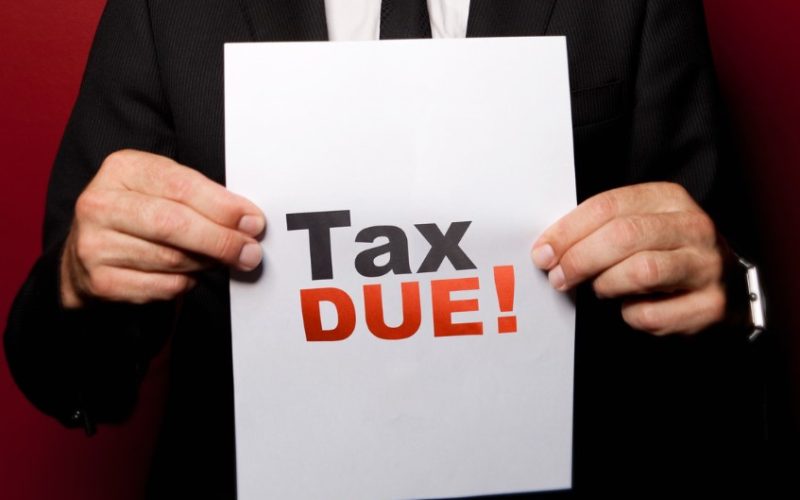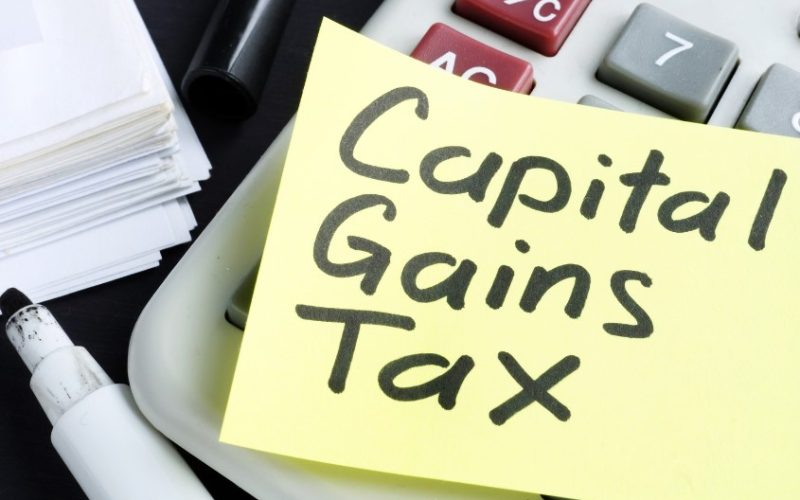Tax season is upon us, and the deadline for filing taxes in Canada is just around the corner. With so many different types of taxes to consider and complex rules to follow, it’s easy to feel overwhelmed. But don’t worry – we’ve got you covered! In this blog post, we’ll answer one of the most pressing questions on every Canadian taxpayer’s mind: when are taxes due in Canada? We’ll also explore everything you need to know about tax obligations, penalties for late filing, how to file your taxes properly, and even some benefits of getting ahead of the game by filing early.
Different Types of Taxes in Canada

In Canada, there are several types of taxes that individuals and businesses may be required to pay.
- One of the most common is income tax, which is levied on the money you earn from employment or investments. The amount of income tax you owe will depend on your income level and other factors such as deductions and credits.
- Another type of tax in Canada is sales tax, which varies depending on the province or territory where the purchase was made. For example, Ontario has a Harmonized Sales Tax (HST) that combines both federal and provincial sales taxes into one rate.
- Property taxes are another significant form of taxation in Canada. These are assessed annually by municipalities based on the value of your property and help fund local services like schools and roads.
- Employers also need to contribute payroll taxes for their employees’ salaries, which include Employment Insurance (EI) premiums and contributions to the Canadian Pension Plan (CPP).
- There are excise taxes that apply to specific goods like alcohol or tobacco products.
Understanding these different types of taxes can help you better prepare for any potential obligations come tax season.
When Are Taxes Due in Canada?
When it comes to taxes in Canada, the due date varies depending on the type of tax and your circumstances. Generally, personal income tax returns are due by April 30th each year for most Canadian taxpayers. However, if you or your spouse is self-employed, then the deadline is extended to June 15th.
It’s important to note that just because you have until June 15th to file your return doesn’t mean you can delay paying any taxes owed without penalty. Any outstanding balance must be paid by April 30th to avoid interest charges.
Business taxes due are typically due within six months after their fiscal year-end. For example, if a business’s fiscal year ends on December 31st, then it would need to file its taxes by June 30th of the following year.
If you’re uncertain about when your specific tax obligations are due in Canada or have extenuating circumstances such as living abroad during tax season, it’s always best to consult with a professional accountant or financial advisor who can help ensure you stay compliant with all applicable laws and regulations.
Understanding of Tax Obligations in Canada
As a Canadian taxpayer, it’s important to have a clear understanding of your tax obligations. These obligations are determined by the Canada Revenue Agency (CRA), which is responsible for administering tax laws and enforcing compliance.
- One of the key things to understand is what income is taxable in Canada. Generally, any income earned from employment or self-employment, as well as investment income and rental income, must be reported on your tax return. There are various exclusions and deductions, nevertheless, that might apply based on your particular circumstances.
- Another important aspect of tax obligations in Canada is determining whether you need to file a tax return. This will depend on factors such as your age, residency status, and level of income. Even if you don’t owe any taxes for the year, you may still be required to file a return.
It’s also essential to keep accurate records throughout the year so that you can report all relevant information on your tax return. This includes keeping track of receipts for charitable donations or medical expenses that may be deductible.
Having a solid understanding of your tax obligations in Canada can help ensure that you remain compliant with CRA regulations and avoid penalties or fines for non-compliance.
Penalties for Late Tax Filing in Canada

Canada has a tax system that relies heavily on individual taxpayers to file their taxes each year. Failing to do so can lead to serious consequences, including penalties and interest charges.
The penalty for filing late is 5% of the balance owed plus an additional 1% for every month that the return is late, up to a maximum of 12 months. In addition, there are also penalties for failing to provide accurate information or making false statements on your tax return.
It’s important to note that even if you don’t owe any taxes, you still need to file your tax return on time to avoid penalties. Many people make the mistake of assuming that they don’t need to file because they didn’t earn enough income or because they had taxes deducted at source.
If you’re unable to pay what you owe by the due date, it’s always better to file your return anyway and contact the Canada Revenue Agency (CRA) as soon as possible. They may be able to work with you on payment options instead of penalizing you further.
Filing your taxes late not only results in financial penalties but can also affect future credit applications and limit access to government benefits such as student loans or childcare subsidies. It’s always best practice to stay up-to-date with your tax obligations in Canada.
How to File Taxes in Canada?
Filing taxes can be daunting, especially if you’re doing it for the first time.
To make the procedure simpler, consider the following recommendation:
- First, gather all necessary documents such as T4 slips and receipts for deductions. It’s important to have accurate information before starting the filing process.
- Next, decide how you want to file your taxes – either online or by mail. If filing electronically, make sure you have access to a secure internet connection.
- If doing it yourself seems overwhelming, consider using tax software or hiring a professional accountant. They can help you through it and make sure everything is done properly.
- When filling out your tax return, double-check all information before submitting it. Any mistakes made could result in penalties or delays in receiving any refunds owed.
- While filing taxes may seem intimidating at first glance, with proper preparation and attention to detail anyone can complete them on their own or with assistance from professionals.
Benefits of Filing Taxes Early in Canada

Filing taxes is one of the key responsibilities of Canadian citizens. While it may seem like a tedious task, there are benefits to filing your taxes early in Canada.
- Firstly, filing your taxes early means you can receive any refunds owed to you sooner. If you have overpaid on your taxes, submitting them early will speed up the process and allow you to receive that money back quicker.
- Secondly, if you owe money on your taxes, filing early gives you more time to come up with the funds needed to pay off any outstanding balances. This can help reduce the stress and anxiety that often comes with waiting until the last minute.
- Filing early also allows for more time to identify errors or discrepancies in your tax return. Reviewing it ahead of time can prevent mistakes and avoid delays or penalties from being assessed by the CRA later on.
There are many benefits to filing your Canadian taxes early including receiving refunds faster, reducing stress levels by paying off debts earlier than necessary and having extra time for review before submission.
Conclusion
Taxes are an essential part of Canada’s economic system. Every individual and business needs to understand their tax obligations and file their taxes on time. Late filing can result in penalties and interest charges that could accumulate over time.
Filing your taxes early has several benefits, including avoiding the last-minute rush, receiving your refund earlier, and having more time to correct any errors or omissions.
By understanding when taxes are due in Canada, taxpayers can plan and ensure they meet their obligations without unnecessary stress or financial burdens.
So whether you’re a seasoned taxpayer or new to the process, be sure to stay informed about changes in tax laws that may affect you. With proper planning and preparation, tax season can be a seamless process that helps support our nation’s economy while keeping your finances on track.
FAQs on when are taxes due canada
1. What is the due date for filing income tax return?
For the majority of taxpayers, July 31, 2023, is the deadline for submitting an income tax return (ITR) for Assessment Year (AY) 2023–24, which covers income generated during the fiscal year 2022–23.
2. How do I pay tax owing to CRA?
Through one of the CRA’s third-party service providers, you can pay with your credit card, Interac e-transfer, or PayPal. @ My Account, a pre-authorized debit (PAD). If you have a remittance voucher with a QR code or a self-generated QR code, you can pay with cash or debit at any Canada Post location across the country for a fee.
3. Why do I owe taxes Canada?
Some people deposit money with the Canada Revenue Agency throughout the year in anticipation of filing their tax returns. This can occur when your employer deducts taxes on your behalf, when you withdraw money from an RRSP and the bank deducts taxes, or when you pay your taxes in instalments throughout the year.
4. What happens if you don’t pay your taxes in Canada?
The Government of Canada website states that you can anticipate being struck with a penalty of 5% on any amount you owe right away, plus 1% for each full month you file your return after the deadline, up to a maximum of 12 months.










